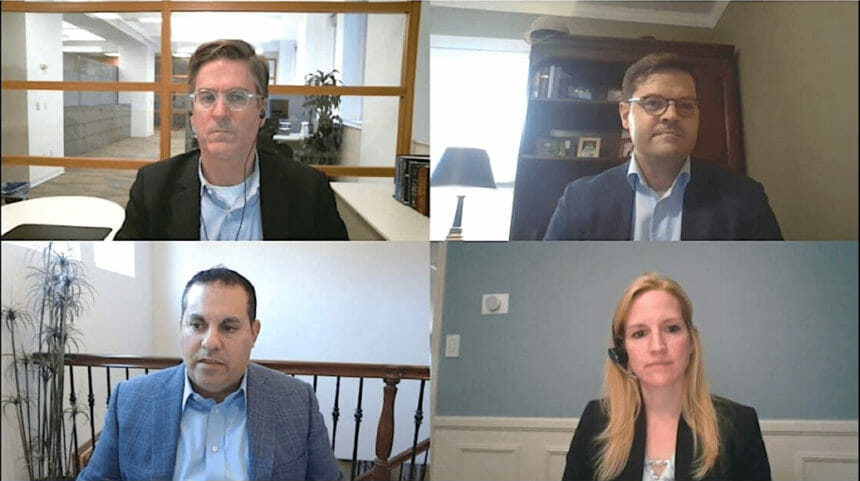
Even before the global pandemic increased scrutiny of congregate living, senior living was seeing an increase in liability claims and premiums in recent years. Fortunately, there are mitigation strategies providers can use to reduce losses, according to insurance and legal experts speaking at the virtual Argentum Senior Living Executive Conference.
Communication and documentation surfaced as the top two strategies providers should implement.
“Any documentation you have is great, but the most important thing is to do the communication first and be there and be available,” said Thomas A. Graham of Hall Booth Smith. “Ultimately, people are going to want to know what you did, why you did it and why was that the right thing to do.”
Thomas G. Goodwin, senior operations counsel for Atria Senior Living, said that communication needs to be with all stakeholders — residents, employees, families, vendors, the local health department and government and regulatory agencies.
Tara J. Clayton, senior claims consultant with Willis Towers Watson, said the overarching theme in COVID-19 lawsuits so far has been “I wasn’t notified what was going on.”
“I can’t stress enough the importance of communication with staff. Make sure staff understand what’s going on and why,” Clayton said.
Graham said communication also involves managing expectations with families and ensuring that expectations are in sync with a facility’s licensure category.
“You talk to families when cases are in litigation, and you hear communication or lack of communication drove them to seek legal remedy in the first place,” Graham said.
Clayton said whether cases can be won and are defensible depends on the documentation and other tools the community is using to help in claims.
Assisted living, she added, is seeing higher costs and claims in general due to an increase in large verdicts in multiple venues across the country. In 2019, a $42.5 million verdict was delivered in California when corporate officers at an assisted living and memory care community were found to be aware of systemic failures, including understaffing, that resulted in aspiration pneumonia and the subsequent death of a resident.
Clayton said that although skilled nursing was the big target of lawsuits for a long time, it was only a matter of time before the action moved into senior living. The senior living industry, however, was not prepared to meet the documentation requirements and use of tools that skilled nursing was using in the defense of those claims, affecting the severity of those claims, she said.
“We are seeing those trends just continue increasing because plaintiffs counsel kind of pushed those verdicts out,” she said. “Carriers are really asking deeper questions into company policies and procedures. You’re going to need to be able to explain and show what processes you’re doing and what you’re going to be doing in the future to show why you’re an insurable risk.”
The panel noted that COVID-19 has closed courtrooms, and when courts resume hearing cases, the first ones to go to trial will be criminal and family cases. Civil cases about money will be deemed of lower priority, and depending on the state, trials may be four to five years out. Graham highlighted alternative dispute resolutions to consider, including mandatory binding arbitration, post-incident voluntary arbitration, mediation, direct negotiation and bench trials.
Protections
When it comes to available protections for providers, Graham said that different sources exist at the federal level: the Coronavirus Aid, Relief, and Economic Security (CARES) Act; the Tort Claims Act, the Public Readiness and Emergency Preparedness (PREP) Act; and sovereign immunity — as well as state-level emergency powers statutes, Good Samaritan laws, volunteer protection statutes and executive orders — that counsel can have in the toolbox to protect employees and communities from litigation.
Clayton added that she is continuing to see a patchwork of state liability protections related to COVID-19, along with the proposed “skinny bill” offering COVID-19 liability protections to healthcare providers. If a community receives a COVID-19 claim, she said, it’s important for executives to work with their carrier, defense counsel and broker to understand the potential defenses and protections available.
“Truly heroic efforts have gone on in the senior living space to protect a vulnerable population from what was going on during COVID,” Clayton said, adding that industry groups, such as Argentum, have come together to share that message with legislators and the public. “Everyone appreciates how important this is.”




